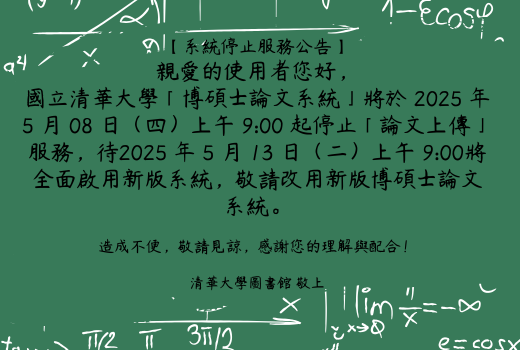|
林則孟,「系統模擬─理論與應用」,滄海書局,2001。
林則孟,「生產計畫與管理」,華泰文化,2012。
鍾雅琳,“考量派工法則與批量流於半導體封裝廠之生產排程問題”,國立清華大學工業工程與工程管理所碩士論文,2015。
Allahverdi, A. and Al-Anzi F. S., “Scheduling multi-stage parallel-processor services to minimize average response time”, Journal of the Operational Research Society, 57, 101–110, 2006.
Allaoui, H. and Artiba A., “Integrating simulation and optimization to schedule a hybrid flow shop with maintenance constraints”, Computers & Industrial Engineering, 47(4), 431–450, 2004.
Carson, J. S., “AutoStat: output statistical analysis for AutoMod users”, Proceedings of the 1996 Winter Simulation Conference, 492–499, 1996.
Chen, C. H. and Lee, L. H., “Stochastic Simulation Optimization: An Optimal Computing Budget Allocation”, 2010.
Garey, M. R. and Johnson, D. S., “Computers and intractability: a guide to the theory of NP-completeness”, San Francisco: Freeman, 1979.
Guinet, A., Solomon, M. M., Kedia, P. K.and Dussauchoy, A., “A computational study of heuristics for two-stage flexible flowshops”, International Journal of Production Research, 34(5), 1399–1415, 1996.
Gupta, J. N. D., Hariri, A. M. A. and Potts, C. N., “Scheduling a two-stage hybrid flow shop with parallel machines at the first stage”, Annals of Operations Research, 69, 171–191, 1997.
Henderson, S. G. and B. L. Nelson, “Handbooks in Operations Research and Management Science: Simulation”, Volume 13, 2006.
Jenabi, M., Ghomi, S. M. T. F., S. A. Torabi and B. Karimi, “Two hybrid meta-heuristics for the finite horizon ELSP in flexible flow lines with unrelated parallel machines”, Applied Mathematics and Computation, 186(1), 230–245, 2007.
Kim, J. S., Kang, S. H.and Lee, S. M., “Transfer batch scheduling for a two-stage flowshop with identical parallel machines at each stage”, Omega, International Journal of Management Science, 25(5), 547–555, 1997.
Kis, T.and Pesch, E., “A review of exact solution methods for the non-preemptive multiprocessor flowshop problem”, European Journal of Operational Research, 164(3) ,592–608, 2005.
Leon, V. J., Ramamoorthy, B., “An adaptable problem-space-based search method for flexible flow line scheduling”, IIE Transactions, 29(2), 115–125, 1997.
Lin, James T. and Huang, Chao-Jung, “A simulation-based optimization approach for a semiconductor photobay with automated material handling system”, Simulation Modelling Practice and Theory, 46, 76–100, 2014.
Lin, James T., Chen, Chien-Ming, Chiu, Chun-Chih and Fang, Hsin-Ying, “Simulation optimization with PSO and OCBA for semiconductor back-end assembly”, Journal of Industrial and Production Engineering, Vol. 30, No. 7, 452–460, 2013.
Linn, R. and Zhang, W., “Hybrid flow shop scheduling: a survey”, Computers & Industrial Engineering, 37(1–2), 57–61, 1999.
Liao, Ching-Jong., Tjandradjaja, Evi., Chung, Tsui-Ping., “An approach using particle swarm optimization and bottleneck heuristic to solve hybrid flow shop scheduling problem”, Applied soft computing, 12, 1755–1764, 2012.
Liu, C. Y. and Chang, S. C., “Scheduling flexible flow shops with sequence-dependent setup effects”, IEEE Transactions on Robotics and Automation, 16, 408–419, 2000.
Liu, Jiyin, “Single-job lot streaming in m-1 hybrid flowshops”. European Journal of Operational Research, 187, 1171–1183, 2006.
Quadt, D. and Kuhn, H., “A taxonomy of flexible flow line scheduling procedures”, European Journal of Operational Research, 178(3), 686–698,2007.
Ribas, I., R. Leisten and Framin ̃an, J. M., “Review and classification of hybrid flow shop scheduling problems from a production system and a solutions procedure perspective”, Computers & Operations Research, 1439–1454, 2010.
Salvador, M. S., “A solution to a special class of flow shop scheduling problems”, In: Elmaghraby SE, editor. Symposium on the theory of scheduling and its applications. Berlin: Springer, 83–91, 1973.
Santos, D. L.,Hunsucker, J. L. and Deal, D. E., “Global lower bounds for flow shops with multiple processors”, European Journal of Operational Research, 80(1), 112–120, 1995.
Tang, L. X. and Zhang, Y. Y., “Heuristic combined artificial neural networks to schedule hybrid flow shop with sequence dependent setup times”, Advances in Neural Networks – ISNN 2005, Part 1, Proceedings, 3496, 788–793, 2005.
Uetake, T., Tsubone, H. and Ohba, M., “A production scheduling system in a hybrid flow shop”, International Journal of Production Economics, 41(1–3), 395–398, 1995.
Vignier, A., Billaut, J. C. and Proust, C., “Hybrid flow shop scheduling problems: state of the art Rairo-Recherche Operationnelle-Operations Research”, 33(2), 117–183, 1999.
Wang, K., Choi, S.H., “A holonic approachto flexible flowshop scheduling unders tochastic processing times”, Computers & Operations Research, 157–168, 2014.
Zhang, W., Yin, Changyu., Liu, Jiyin and Linn, Richard J., “Multi-job lot streaming to minimize the mean completion time in m-1 hybrid flowshops”. International Journal of Production Economics 96 (2), 189–200, 2005.
|
